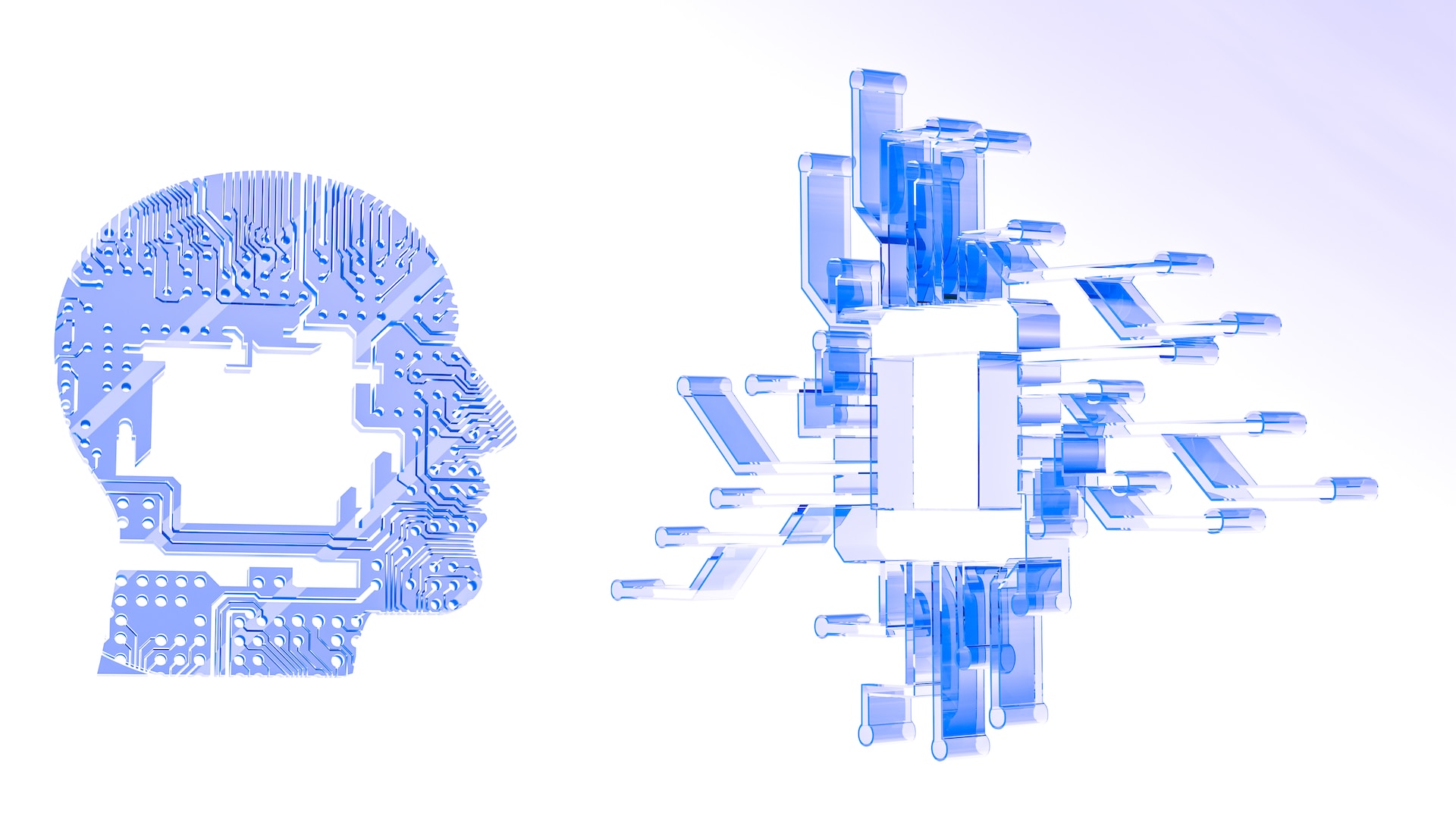Managing properties brings a steady stream of responsibilities—maintenance requests, tenant questions, lease renewals, and more. You may feel these daily demands are overwhelming, but artificial intelligence is beginning to change the way you can handle these tasks, from sorting through communications to predicting and scheduling repairs.
By leveraging AI, you gain tools that automate routine work, support data-driven choices, and even enhance your relationships with tenants. As you explore this landscape, consider both the benefits and the challenges AI brings, as well as the potential future of property management as AI continues to develop.
Key Takeaways
- AI is transforming daily property management tasks and workflows
- Automation and smarter insights are reshaping tenant experiences
- Challenges and opportunities will shape the future of this field
Brief History of Property Management
Property management began as a very direct, hands-on role. You would have needed to keep careful track of keys, write payment details into paper ledger books, and meet with tenants in person for almost every interaction. Communication relied on long phone calls, and paperwork piled up quickly, reflecting the highly personal and time-intensive nature of managing real estate in the past.
As technology evolved, computers brought the first big change. Ledger books gave way to digital spreadsheets, and databases replaced physical files. You could send an email instead of making another call, which sped up routine processes and reduced the burden of organizing paper documents. This digital shift meant you could handle more properties without adding to your workload.
Today’s property management landscape features powerful software solutions. You can handle tenant screening and lease signing online, process rent payments electronically, and automate maintenance tracking. Marketing real estate has transformed as well, with property listings widely available on digital platforms—potential tenants browse, apply, and even sign leases without ever stepping out of their homes.
Mobile technology delivers even more flexibility. With a smartphone or tablet, you carry your entire operation in your pocket. Whether you’re inspecting a unit, responding to a repair request, or coordinating with contractors, you can do it quickly and remotely.
To illustrate the technological evolution in property management:
| Era | Tools & Processes | Impact |
|---|---|---|
| Early Days | Ledgers, paper records, face-to-face, phone calls | High time investment, manual tracking |
| Computer Revolution | Spreadsheets, databases, email | Increased efficiency, less paperwork |
| Modern Technology | Software, online listings, mobile devices | Streamlined workflows, remote access |
Now, property management is beginning to incorporate artificial intelligence. AI automates routine tasks, analyzes market data, and improves decision-making in real estate. This ongoing evolution continues to shape how you manage properties, offering new tools to deliver better experiences for both owners and tenants, while making your day-to-day operations more efficient.
Understanding AI in Property Management
Artificial intelligence (AI) is shaping property management by introducing new efficiencies and actionable insights. AI-powered solutions can handle a variety of everyday and complex tasks, helping you deliver better service and streamline your operations.
Machine Learning in Property Management
Machine learning uses large amounts of data to detect patterns and make predictions. In property management, this allows you to:
- Predict when maintenance should be scheduled based on equipment and repair history
- Identify trends in rent payments and detect patterns in tenant behavior
- Optimize energy consumption by learning usage habits
By leveraging machine learning, you can improve your decision-making. For example, analyzing maintenance data helps you prevent costly breakdowns, while payment analytics alert you to potential risks with tenants. These capabilities support greater operational efficiency and can reduce expenses over time.
A simple overview of common machine learning applications for property managers:
| Application | Benefit |
|---|---|
| Predictive maintenance | Lower repair costs, fewer emergencies |
| Trend analysis | Improved risk management |
| Dynamic pricing | Maximized rental income |
To learn more about how AI and machine learning are transforming the sector, see how AI in property management is reshaping leasing and operations.
Natural Language Processing in Property Management
Natural language processing (NLP) enables machines to understand and respond to spoken or written human language. For property management, NLP-powered solutions can:
- Run chatbots to answer tenant questions 24/7
- Analyze tenant communication for sentiment and key themes
- Automate sorting and categorization of email and maintenance requests
This technology means you can respond to tenant inquiries instantly, even outside business hours. It also helps you analyze feedback to spot common issues, improving tenant satisfaction.
You can read more about the impact of AI-powered chatbots and NLP on property management processes.
By integrating both machine learning and NLP, your property management approach becomes more responsive, data-driven, and efficient.
Impacts of AI on Property Management
Efficiency and Productivity
AI solutions help you automate repetitive, time-consuming tasks such as lease renewals, scheduling showings, and chasing rent payments. This lets you dedicate more energy to resource allocation and improving tenant relations. By reducing manual work, AI adoption helps you manage larger portfolios with greater accuracy and speed.
You can use digital assistants to handle communications, send automated reminders, and sort rental applications. The outcome is better productivity, higher lead conversion, and increased tenant satisfaction as processes move faster and with fewer errors.
Key Benefits:
- Automation of daily administrative tasks
- Enhanced time management for property managers
- Improved tenant retention through responsive operations
Predictive Maintenance
With AI-based predictive maintenance, you gain visibility into when building systems or appliances will need service. For example, by evaluating maintenance records and usage patterns, AI can forecast a likely failure and notify you before issues arise. This reduces costly emergency repairs and unplanned downtime.
Proactive maintenance scheduling contributes to greater tenant satisfaction and extends asset lifespans. You can plan ahead, allocate maintenance teams efficiently, and minimize disruption to residents. This results in better budgeting and more sustainable energy management.
How AI Supports Predictive Maintenance:
| Feature | Result |
|---|---|
| Data pattern analysis | Early fault detection |
| Automated scheduling | Timely service interventions |
| Risk assessment | Fewer unexpected breakdowns |
Tenant Interaction
AI-powered chatbots and virtual assistants are transforming how you communicate with tenants. Instant responses to inquiries—day or night—create a superior experience and foster better tenant relations. This technology reduces the communication burden on your staff and speeds up routine tasks.
AI-driven tools analyze applications and flag potential issues or mismatches, making tenant screening and onboarding more effective. These systems drive both lead conversion and ongoing tenant satisfaction.
Common AI Applications:
- 24/7 chatbots for lease and maintenance questions
- Personalized updates for tenants
- Automated tenant screening processes
Data Analysis and Decision Making
AI enables you to harness large datasets for informed, data-driven decision making. Systems analyze market trends, rental histories, and occupancy rates to provide accurate pricing recommendations and anticipate shifts in demand. This empowers you to maximize revenue, improve market analysis, and streamline resource allocation.
You also benefit from improved risk assessment and forecasting, allowing for more strategic planning. Through continuous analysis, AI systems can flag anomalies, recommend adjustments, and support your ongoing business goals.
Data-Driven Advantages:
- Smarter rent and contract pricing based on real-time data
- Deeper insights into tenant retention metrics
- Ability to anticipate market changes and adapt faster
Challenges and Concerns

Learning Curve
Adopting AI for property management means you’ll face a learning curve, especially if your team lacks a technical background. You will need to train your staff to use new tools efficiently. Integrating AI with existing property management systems can also be complex, so you should provide ongoing support and proper onboarding.
Cost
The initial investment in AI tools can be significant, even though they may contribute to cost savings over time. Expenses can include software licenses, integration fees, and staff training. Assess the cost-benefit ratio before proceeding, especially when considering features like tenant screening or maintenance automation.
| Expense Type | Example |
|---|---|
| Upfront | Software purchase, setup |
| Ongoing | Maintenance, updates, support |
| Training | Staff education and onboarding |
Privacy
AI often requires access to and analysis of substantial data sets, including sensitive information like tenant history and credit score. You must protect data privacy by adopting robust security protocols. Clearly communicate with tenants about data handling and privacy to maintain trust and comply with regulations.
Ethics
AI-powered decision-making must be transparent and fair, especially in tenant screening and predictive analytics. Bias in algorithms can lead to unfair discrimination, so you need to provide continuous oversight. Ethical considerations should also include respecting tenant boundaries and ensuring AI solutions do not cross into invasive territory.
For a broader discussion on implementation challenges and maintaining trust, see the focus on balancing automation with expertise.
Future of AI in Property Management
AI is set to transform daily property management with more integrated solutions. Predictive maintenance will become increasingly advanced, allowing you to anticipate and resolve issues before they escalate. AI-driven data analysis can identify trends within your properties, optimizing operations and resource allocation.
AI-powered chatbots and instant messaging are likely to become standard communication tools. These technologies facilitate around-the-clock service to tenants, offering prompt responses and freeing up your time for higher-level decisions. Enhanced automation tools will help you handle recurring tasks such as rent collection and lease renewals efficiently.
Key Steps to Prepare:
- Stay Informed: Follow industry updates on AI advancements by attending conferences and subscribing to expert insights, such as those discussed in this overview on AI’s impact in property management.
- Embrace Technology: Experiment with new platforms and choose tools that align with your business model.
- Invest in Training: Upskill your team to enhance digital literacy, ensuring everyone is comfortable using new AI solutions.
- Prioritize Data Security: Protect tenant data and make your processes transparent while complying with privacy laws.
- Consider Ethics: Uphold fair and transparent practices, keeping tenant privacy at the forefront.
| AI Focus Area | Benefit |
|---|---|
| Predictive Maintenance | Fewer surprises, reduced costs |
| Chatbots and Messaging | Faster tenant support |
| Data-Driven Insights | Improved decision-making |
| Automation | Streamlined daily operations |
Staying agile and prepared will help you thrive in the evolving property management landscape.
Frequently Asked Questions
What are the best AI software solutions for property management?
You can choose from a variety of AI-powered software platforms to streamline property management, including property maintenance tracking, leasing automation, and tenant communication. Popular options include:
- AppFolio: Automates rent collection and maintenance requests.
- Buildium: Uses AI tools for accounting, leasing, and tenant management.
- Yardi Voyager: Integrates predictive analytics for property insights.
- Re-Leased: Focuses on commercial property management with AI-driven alerts and reminders.
Some platforms offer mobile apps and dashboards so you can manage properties remotely and efficiently.
Can AI fully automate the role of property managers?
AI can automate many routine tasks such as rent reminders, application screening, and scheduling maintenance appointments. However, it cannot fully replace the need for human judgment in areas like conflict resolution, negotiation, and personalized tenant management.
Many property managers use AI as a tool to reduce administrative workload and errors, but human oversight remains essential for decision-making and relationship management.
How is AI transforming the real estate industry?
AI is transforming the real estate industry by enabling:
- Virtual property tours using AI-powered 3D walkthroughs.
- Automated property valuation for more accurate price estimates.
- Smart leasing through chatbots and automated lease generation.
- Predictive analytics to forecast property trends and investment opportunities.
These advancements lead to faster transactions, enhanced accuracy, and greater transparency.
What will be the impact of AI on landlords and home rental management?
For landlords, AI provides tools to:
- Screen tenants more efficiently using data analytics.
- Automate rent payments and reminders.
- Predict maintenance issues before they escalate.
- Optimize rental pricing to match market trends.
This can reduce time spent on repetitive tasks and help improve tenant satisfaction, though adapting to new technologies may require some initial training.
In what ways is generative AI being utilized in property management?
Generative AI is used for:
- Drafting lease agreements and communication templates.
- Creating personalized marketing content for property listings.
- Generating detailed maintenance reports from simple input data.
- Simulating property staging in marketing images.
These applications can help you save time on paperwork and enhance the appeal of your listings.
What are the legal implications of AI integration in real estate transactions?
AI integration in real estate raises several legal issues:
- Privacy: Companies must collect and store tenant and applicant data securely.
- Fair housing: Organizations should avoid algorithmic bias in tenant screening processes.
- Contract validity: Legal teams need to review AI-generated contracts for compliance with local laws.
- Transparency: Agents and property managers should disclose the use of AI tools in decision-making to tenants and clients.
What if you could predict rental market trends before they happen?
Access rental comps and market data for over 140M properties and transform your investment strategy. Save 20% with code BIGDEAL on RentCast.io!

Master the art of real estate investing with The Real Estate Property Management Guide: Premium Edition – your comprehensive roadmap to successful property management.
Whether you’re a novice investor or seasoned professional, this guide covers everything from selecting the right investment properties to tenant management and property marketing.
The author, Jeff Rohde writing as Jeffrey Roark, is a professional with over 25 years of real estate experience. This Premium Edition includes the valuable bonus book Investment Real Estate Analysis: A Case Study to help you identify hidden opportunities and evaluate properties like a professional.
Learn practical, actionable strategies for both residential and commercial properties, from single-family homes to office buildings and shopping centers.
Don’t just buy property – learn how to manage it successfully and maximize your investment potential.
Grab your copy now from your favorite bookseller:
- Amazon (Basic Edition, does not include Investment Real Estate Analysis: A Case Study)
- Books2Read for Apple, Barnes & Noble, Kobo, Scribed, and 8 more sellers with both eBook and paperback options available (Premium Edition, includes Investment Real Estate Analysis: A Case Study)
- Payhip as a downloadable PDF (Premium Edition)
Ready to take your business to the next level?
- Subscribe to our newsletter
- Visit the learning center
- Learn more about our consulting services



